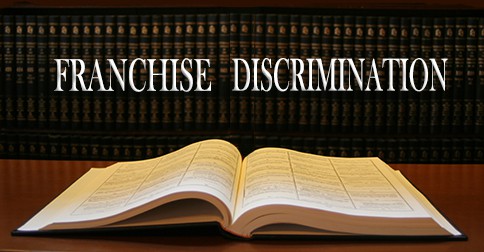
The issue of franchise discrimination was recently addressed by an Indiana state court just prior to a trial between Franchisor, Volvo Trucks North America, and its Franchisee of just six years. The Franchisee alleged, among other allegations, that Volvo had discriminated against it; and specifically, that Volvo was treating this Franchisee differently than franchisees in other territories. The Franchisee relied upon the Indiana Deceptive Franchise Practices Act (“IDFPA”).
FRANCHISOR ATTEMPTS TO HAVE ALLEGATION DISMISSED
The Franchisor attempted to have the allegation dismissed on the eve of trial. However, the Court would have none of this and ruled that the dismissal application should have been filed sooner in the action. Andy Mohr Truck Ctr., Inc. v. Volvo Trucks N. Am., 2015 U.S. Dist. LEXIS 93817 (decided July 20, 2015).
This decision is instructive for Franchisees who may be struggling under discriminatory practices by their Franchisors; whereby, they are treated less favorably than other franchisees.
NJ FRANCHISE ACT PROVISIONS OF DISCRIMINATION
Unfortunately for New Jersey franchisees, the State’s Franchise Act contains just two provisions going to the issue of discrimination, but they are narrowly focused on automobile franchises. These provisions read as follows:
- To fail or refuse to sell or offer to sell to all motor vehicle franchisees in a line make every motor vehicle sold or offered for sale to any motor vehicle franchisee of the same line make, or to fail or refuse to sell or offer to sell such motor vehicles to all motor vehicle franchisees at the same price for a comparably equipped motor vehicle, on the same terms, with no differential in discount, allowance, credit or bonus, and on reasonable, good faith and non-discriminatory allocation and availability terms. However, the failure to deliver any such motor vehicle shall not be considered a violation of this section if the failure is not arbitrary and is due to a lack of manufacturing capacity or to a strike or labor difficulty, a shortage of materials, a freight embargo or other cause over which the franchisor has no control.
- To allocate vehicles to or evaluate the performance of a motor vehicle franchise based on, or offer any discount, incentive, bonus, program, allowance or credit that differentiates between vehicle sales by a motor vehicle franchisee within a territory or geographic area assigned to the motor vehicle franchisee and vehicle sales outside of such territory or geographic area.
N.J.S.A. 56:10-7.4 [Emphasis added.]
CAN NON-MOTOR VEHICLE FRANCHISEES ASSERT
DISCRIMINATION CLAIMS IN NJ COURTS?
Although New Jersey motor vehicle franchises are protected from discrimination, may non-motor vehicle Franchisees assert discrimination claims in the New Jersey courts? The answer: at present, the only other Franchisees able to raise statutory discrimination claims are liquor wholesalers, per N.J.S.A. 33:1-93.6. This statute reads, in part, as follows:
There shall be no discrimination in the sale of any nationally advertised brand of alcoholic beverage other than malt alcoholic beverage, by importers, blenders, distillers, rectifiers and wineries, to duly licensed wholesalers of alcoholic beverages who are authorized by such importers, blenders, distillers, rectifiers and wineries to sell such nationally advertised brand in New Jersey.
FRANCHISES NOT INVOLVED IN SELLING ALCOHOL OR MOTOR VEHICLES CAN ASSERT DISCRIMINATION AGAINST FRANCHISOR
Therefore, unless your New Jersey franchise involves selling motor vehicles or alcoholic beverages (excepting malt liquor for some reason), you may not assert discrimination against your Franchisor for treating franchisees in other territories differently (read, more favorably).
However, New Jersey Franchisees still have one option to counter discriminatory trade practices by Franchisors. Since you may not rely on statutory remedies to address Franchisor discrimination, consider negotiating for anti-discrimination language in your franchise agreement (or in an addendum to the agreement). For starters, you should request the same terms as all other Franchisees (or “the most favorable terms” offered to other Franchisees), with no differential in discount, allowance, credit or bonus, and on reasonable, good faith and non-discriminatory allocation and availability terms. Be certain to use the word, “non-discriminatory,” as often as reasonably possible.
You have a right to negotiate for these remedies, and provided the Franchisor is highly desirous of your fee and anticipated royalty checks, you may be able to secure these favorable terms. It is all a matter of leverage. Understand that these terms will likely be enforced by the New Jersey Superior Court and Federal District Courts, so every effort to curtail discriminatory trade practices within the Franchise Agreement, or addendum, is worth your time and money.
BE ADVISED that these comments are not intended as legal opinions and are not to be relied upon as legal advice. If you need legal advice concerning Franchise Law, please contact us to discuss the specifics of your franchise business.
© KilcommonsLaw, P.C. 2015the
